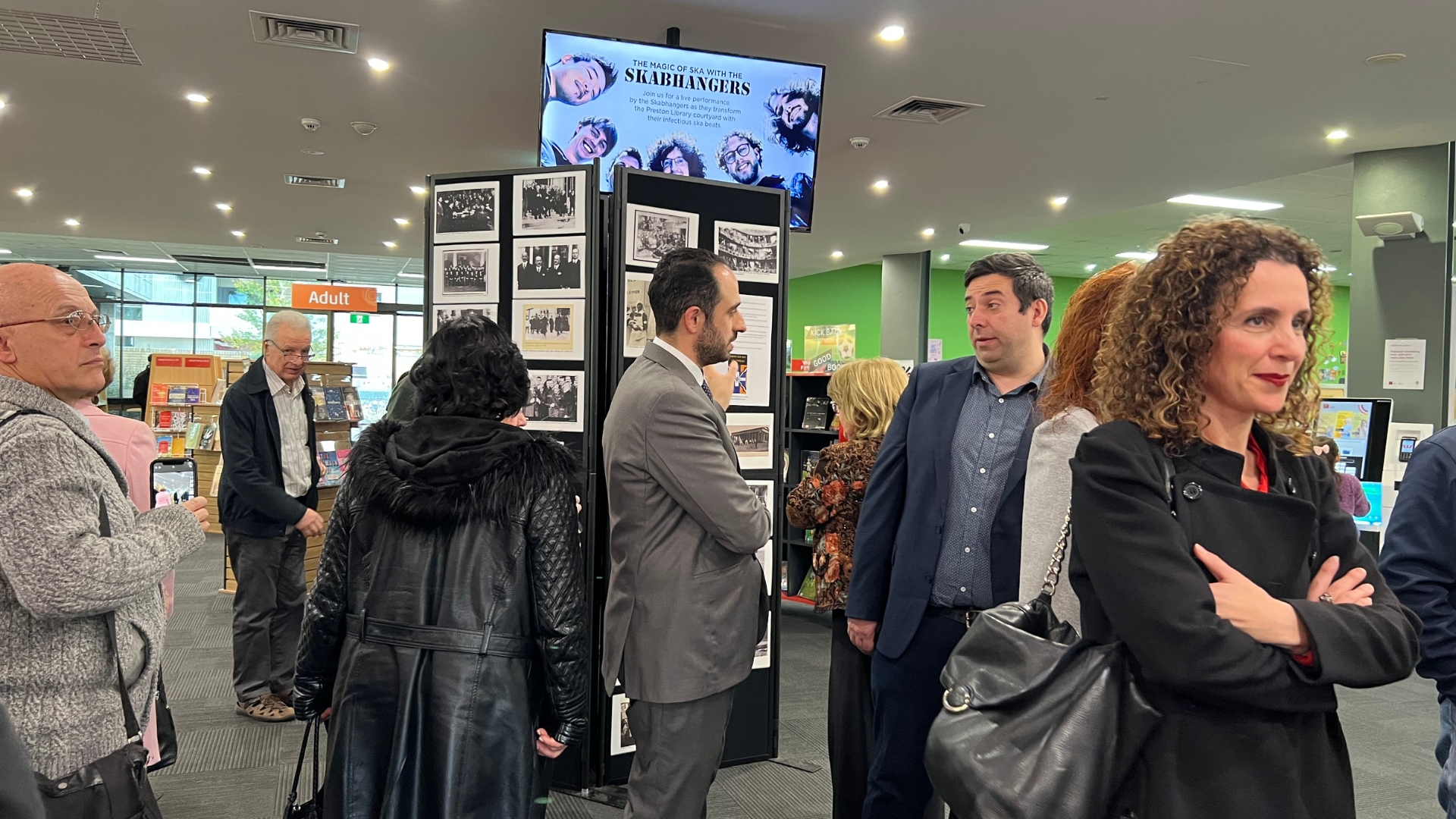By Marianna Alepidis.
The Return to Anatolia (RTA) committee launched its photographic exhibition for the centenary of the signing of the Treaty of Lausanne at the Preston Library in Victoria on Sunday, July 16.
Taking pride of place in the centre of the library, photos and archival articles on display show the delegations who attended the historic Lausanne conference in 1923 and the refugees who were displaced, ending up in Greece.
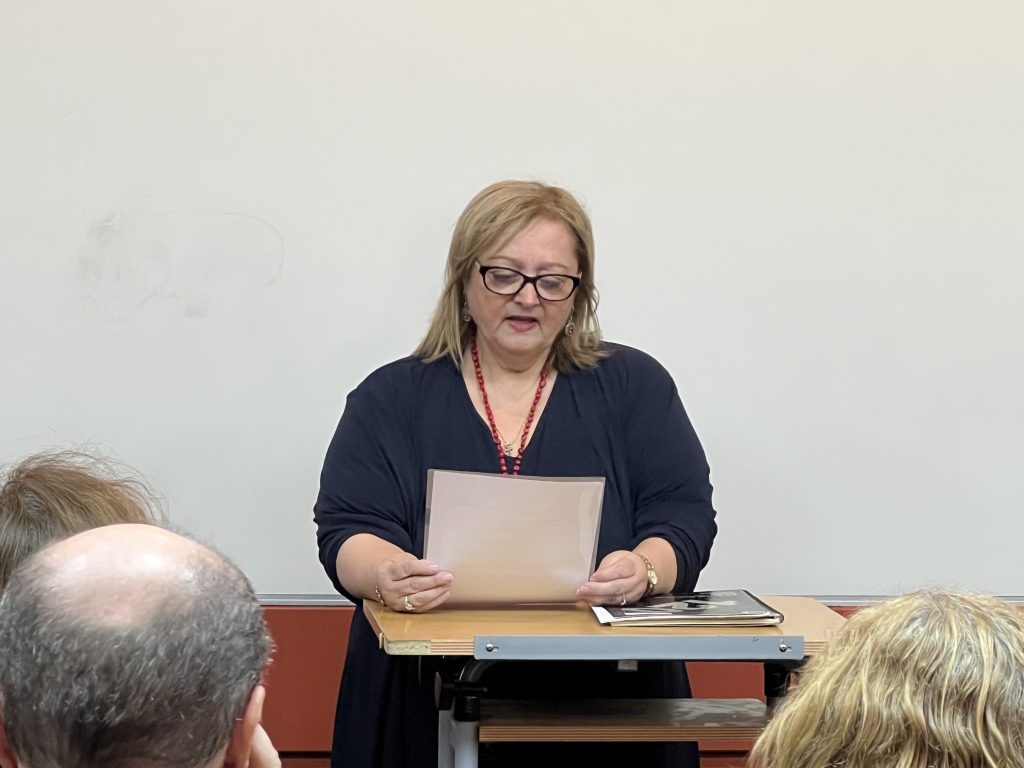
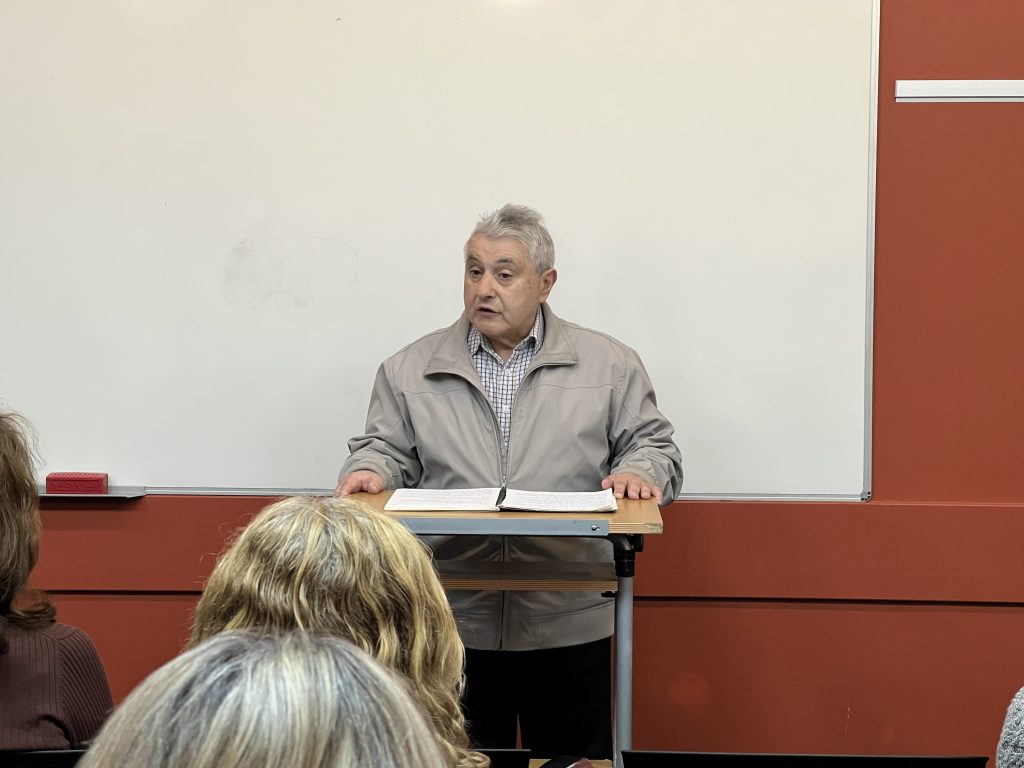
Merri-bek councillor Lambros Tapinos emceed the event, sharing anecdotes and musings of his own before introducing RTA Chairperson Sofia Kotanidis.
“It wasn’t long ago that I was fortunate to be travelling around in Turkey and I came across a town called Kaya Koyu, in the southwest. The sign said it was a deserted town, an abandoned town,” Councillor Tapinos explained.
“As I walked around, I saw 3000 buildings, their roofs fallen in and a couple of churches. And as I climbed up on the hill, and saw some chapels, and the beautiful landscape… I thought to myself, ‘Where are these people? What happened to them, where are they now?’ It really got me thinking about the Treaty of Lausanne and the consequences which are not just territorial, but impact on people’s lives.”
Ms Kotanidis welcomed everyone to the launch and outlined how the exhibition came to be.
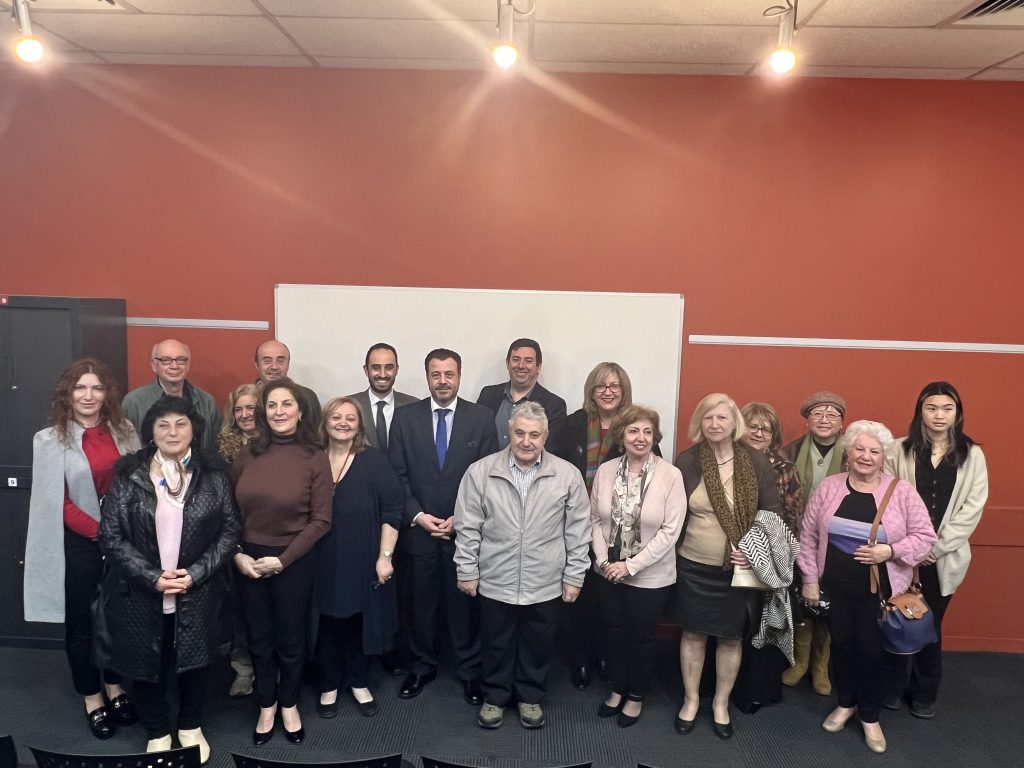
“This photographic exhibit is organised by delegation, refugee and newspaper accounts of the time. It shows photographs of the plight and suffering of the refugees whilst delegates of Lausanne decided on the future. These delegates failed to consider the human element of suffering, hardship, loss of identity, loss of family and loss of lives,” she said.
“The Treaty of Lausanne made it impossible for these refugees to return to their ancestral homeland. They lived and died with the false hope and yearning of seeing their beloved homeland once again.”
Consul General of Greece in Melbourne, Emmanuel Kakavelakis, was also present at the event, making an appearance after having spent the early part of the afternoon at a wreath laying ceremony commemorating the 49th anniversary of the 1974 Turkish invasion of Cyprus.
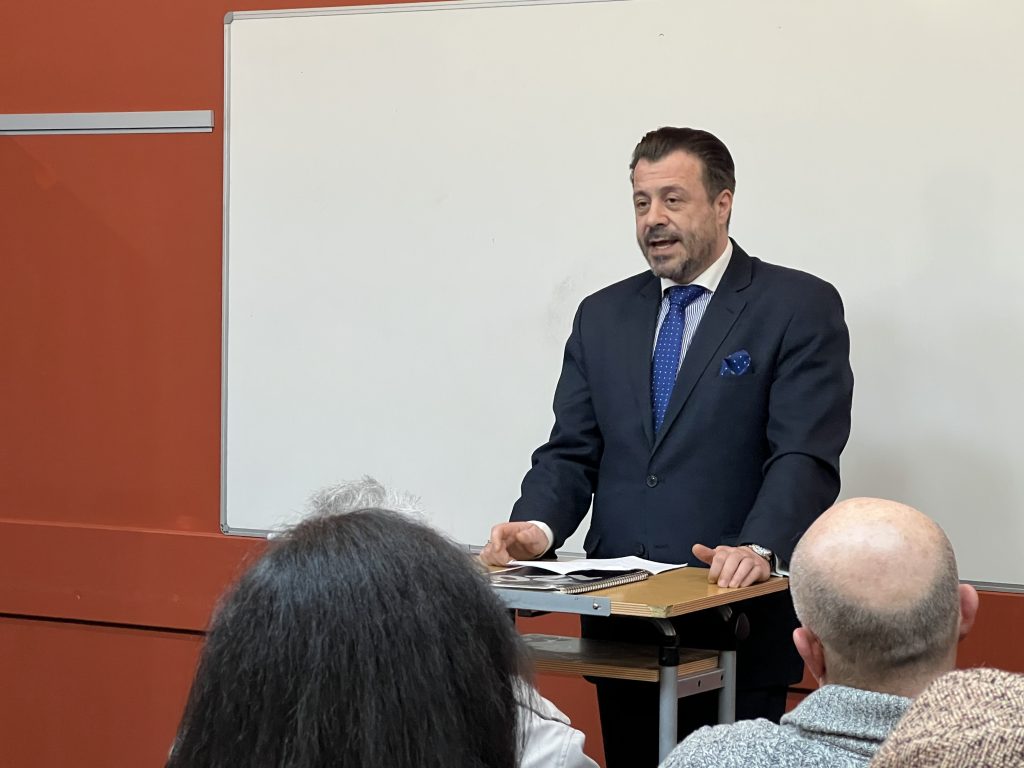
He gave an account of the events that had ensued in 1923 and touched on the ongoing impact the Lausanne Treaty had enacted.
“I want to firstly say that we recognise that Turkey never actually respected its [the treaty’s] conditions and whatever referred to the population. It started a calculated genocide against the Greeks of Constantinople of Imvros and Tenedos. Today only about 2000 homogenous people are left from about the 280,000 that once were, and on the island there are only a few hundred from the five to six thousand that once were present,” Mr Kakavelakis said.
Stavros Terry Stavridis gave a moving presentation entitled The Effects and Consequences of the 1923 Treaty of Lausanne. The historian covered topics including the exchange of populations, the future of the Patriarchate and reparations.
After his presentation, the floor was open for questions, which brought up the various Greek genocides that are still fighting for official recognition.
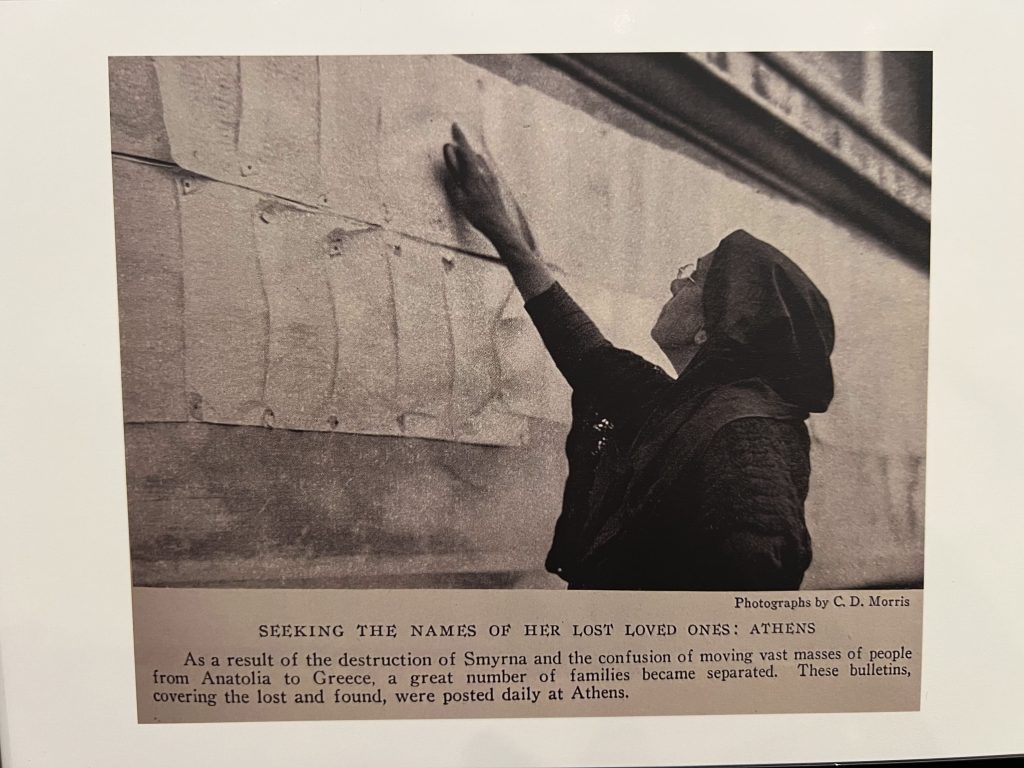
“If we are to win the battle for the recognition of our genocide, it’s not going to be here in Canberra, it has to be Washington DC, in the White House, because that is the greatest power at the moment. All it needs is for President Biden to get up and say, ‘yes, there is a Greek genocide’,” Mr Stavridis said.
As Cr Tapinos closed out the proceedings, he left the guests, and those watching via the Facebook livestream, with some food for thought.
“I began of course, as is customary, by acknowledging our traditional owners, the Wurundjeri people. And we hope that one day we will be able to visit Turkey at least and have that same acknowledgement about the traditional owners in Anatolia, and what they’ve contributed, which goes back [millennia],” he said.
The exhibition will be available to view at the Preston Library for four weeks. For more information, visit the Return To Anatolia Australia Facebook page.
*All photos copyright The Greek Herald / Marianna Alepidis.

